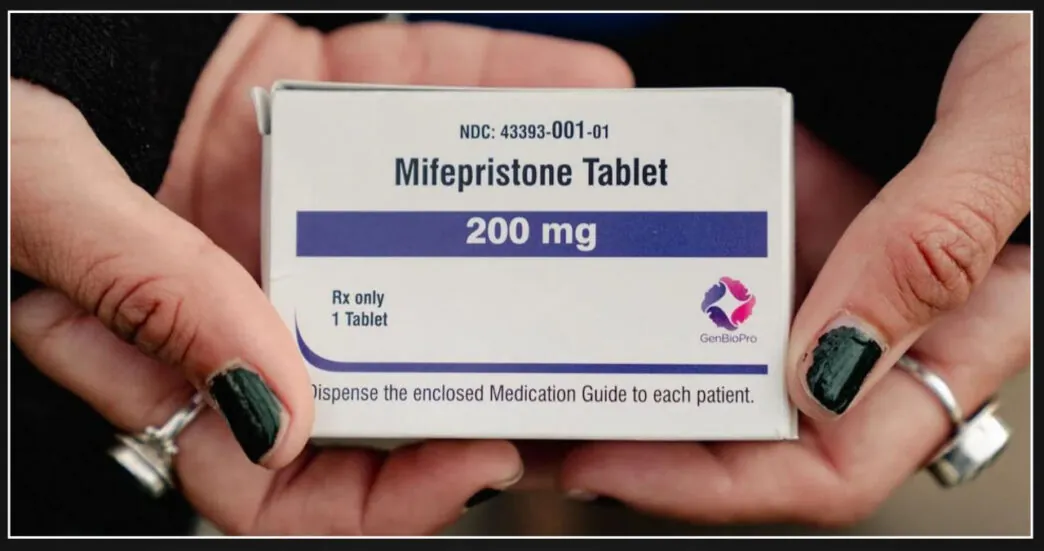A Texas judge has made a ruling on Thursday, allowing three other states to proceed with their initiative of reversing federal regulations, which would result in increased difficulties for individuals nationwide in accessing the abortion medication mifepristone.
The states of Idaho, Kansas, and Missouri have filed a request in U.S. District Court in Amarillo, Texas. The request was made to Judge Matthew Kacsmaryk, who was nominated by former President Donald Trump. Judge Kacsmaryk has previously ruled in favor of a challenge to the approval of the pill.
The states are urging the federal Food and Drug Administration to ban telehealth prescriptions for mifepristone and restrict its use to only the first seven weeks of pregnancy, rather than the current limit of 10 weeks. Additionally, they are pushing for a requirement of three in-person doctor office visits instead of allowing the drug to be obtained without any in-person visits.
According to court documents, the states argue that the efforts to provide access to the pills “undermine state abortion laws and frustrate state law enforcement.”
Kacsmaryk emphasized that individuals should not be dismissed from filing lawsuits in Texas solely based on their residency status outside the state.
The American Civil Liberties Union (ACLU) has expressed its opinion that the case should have been resolved when the U.S. Supreme Court unanimously upheld access to mifepristone last year. In their ruling, the justices found that the abortion opponents who initially brought the case lacked the legal standing to sue.
According to the ACLU, Kacsmaryk’s ruling has created an opportunity for extremist politicians to persistently target medication abortion within his jurisdiction.
The ruling arrives just days before President Trump commences his second term, which means that his administration will probably be representing the FDA in this case. Trump has consistently expressed his belief that abortion should be left to the states rather than the federal government. However, during his campaign, he emphasized that he appointed Supreme Court justices who played a crucial role in overturning the nationwide right to abortion in 2022.
Abortion opponents have been focusing more on abortion pills as they have become the preferred method for most abortions in the United States. In response, several states, including Indiana, Missouri, New Hampshire, and Tennessee, have introduced bills to ban these pills. However, Louisiana has taken a unique approach by classifying the drugs as controlled dangerous substances.
Kacsmaryk previously aligned himself with a coalition of doctors and organizations opposing abortion, who sought to compel the FDA to completely withdraw its approval of mifepristone in 2000.
The states are taking a more specific approach in their challenge. Instead of challenging the approval as a whole, they are aiming to reverse a set of recent FDA updates that have made access easier.
In contrast to the efforts of state leaders to restrict access to drugs, Missouri voters made a different statement in November by approving a ballot measure that aimed to overturn one of the most stringent bans in the country. Meanwhile, in Idaho, abortion is prohibited throughout all stages of pregnancy, while in Kansas, it is generally permissible until the 22nd week of gestation.
Thirteen states in the United States, where Republican lawmakers hold control, have implemented strict abortion laws that prohibit the procedure at all stages of pregnancy, with a few exceptions. Additionally, four more states have enacted laws that ban abortion after the first six weeks, a time when many women are unaware of their pregnancy.
In an effort to protect doctors who provide telehealth appointments and prescribe abortion pills through mail to patients in states with bans, certain states controlled by Democrats have enacted laws to shield them from investigations and legal proceedings. These prescriptions play a significant role in maintaining the same level of abortion rates in states with bans, as observed in a recent study.
Mifepristone is commonly used alongside another medication for medication abortion, which has been responsible for over three-fifths of all abortions in the U.S. ever since the Supreme Court’s decision to overturn Roe v. Wade.
The drugs differ from Plan B and other emergency contraceptives typically taken within three days after potential conception, long before women realize they are pregnant. Research indicates that these drugs are generally safe and achieve successful abortions over 97% of the time, which is slightly less effective than procedural abortions.














